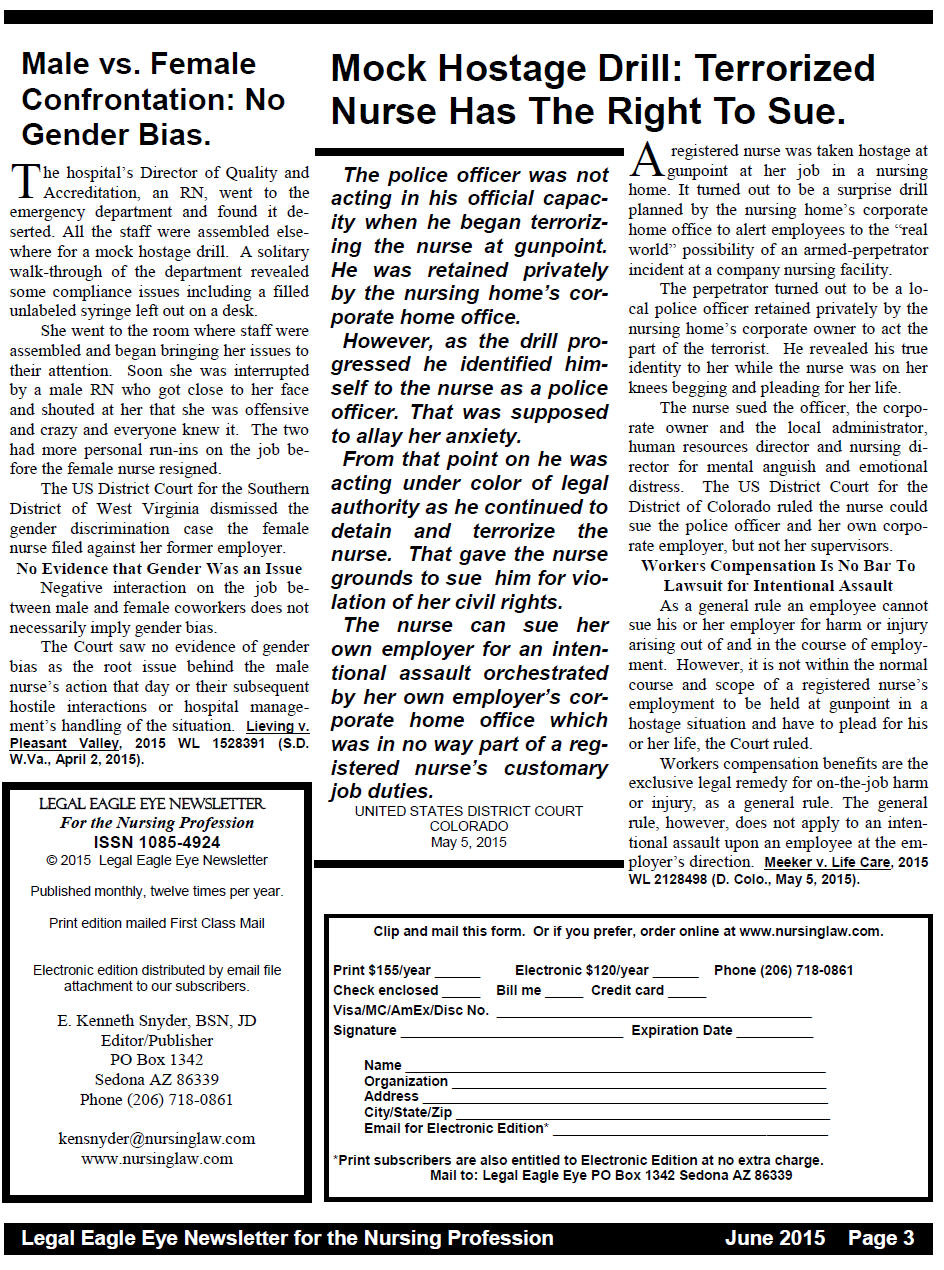
Legal Eagle Eye Newsletter for the Nursing Profession Home Page
New Subscriptions I About Our Newsletter I Sample Newsletter I FAQ I Contact Us

Mock Hostage Drill: Terrorized Nurse Has The Right To Sue.
The police officer was not acting in his official capacity when he began terrorizing the nurse at gunpoint. He was retained privately by the nursing home's corporate home office.
However, as the drill progressed he identified himself to the nurse as a police officer. That was supposed to allay her anxiety.
From that point on he was acting under color of legal authority as he continued to detain and terrorize the nurse. That gave the nurse grounds to sue him for violation of her civil rights.
The nurse can sue her own employer for an intentional assault orchestrated by her own employer's corporate home office which was in no way part of a registered nurse's customary job duties. UNITED STATES DISTRICT COURT COLORADO May 5, 2015
A registered nurse was taken hostage at gunpoint at her job in a nursing home. It turned out to be a surprise drill planned by the nursing home's corporate home office to alert employees to the real worldŁ possibility of an armed-perpetrator incident at a company nursing facility.
The perpetrator turned out to be a local police officer retained privately by the nursing home's corporate owner to act the part of the terrorist. He revealed his true identity to her while the nurse was on her knees begging and pleading for her life.
The nurse sued the officer, the corporate owner and the local administrator, human resources director and nursing director for mental anguish and emotional distress. The US District Court for the District of Colorado ruled the nurse could sue the police officer and her own corporate employer, but not her supervisors.
As a general rule an employee cannot sue his or her employer for harm or injury arising out of and in the course of employment. However, it is not within the normal course and scope of a registered nurse's employment to be held at gunpoint in a hostage situation and have to plead for his or her life, the Court ruled.
Workers compensation benefits are the exclusive legal remedy for on-the-job harm or injury, as a general rule. The general rule, however, does not apply to an intentional assault upon an employee at the employer's direction. Meeker v. Nursing Home, 2015 WL 2128498 (D. Colo., May 5, 2015).
More references from nursinglaw.com
http://www.nursinglaw.com/hostage-crisis.htm